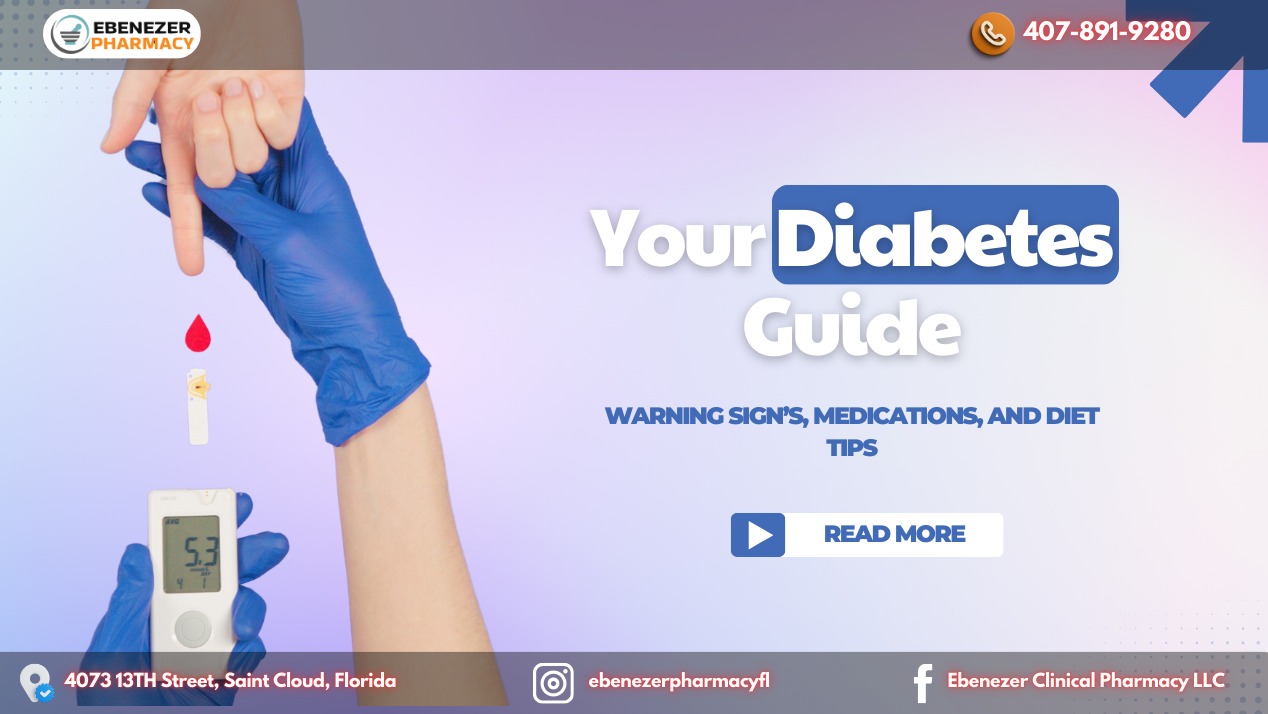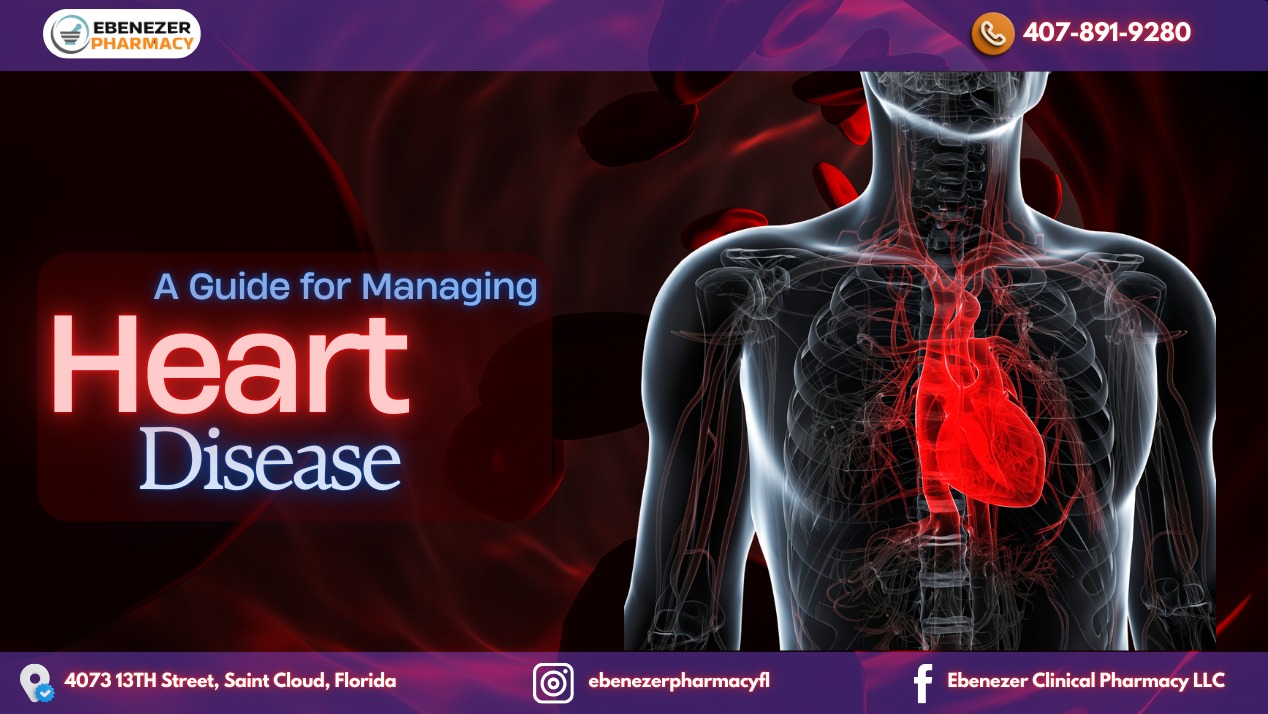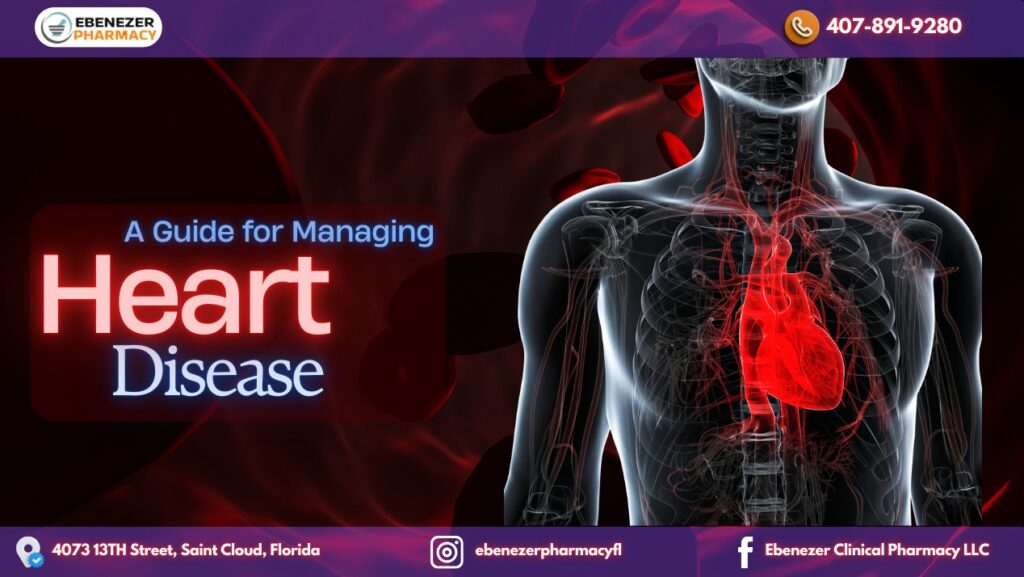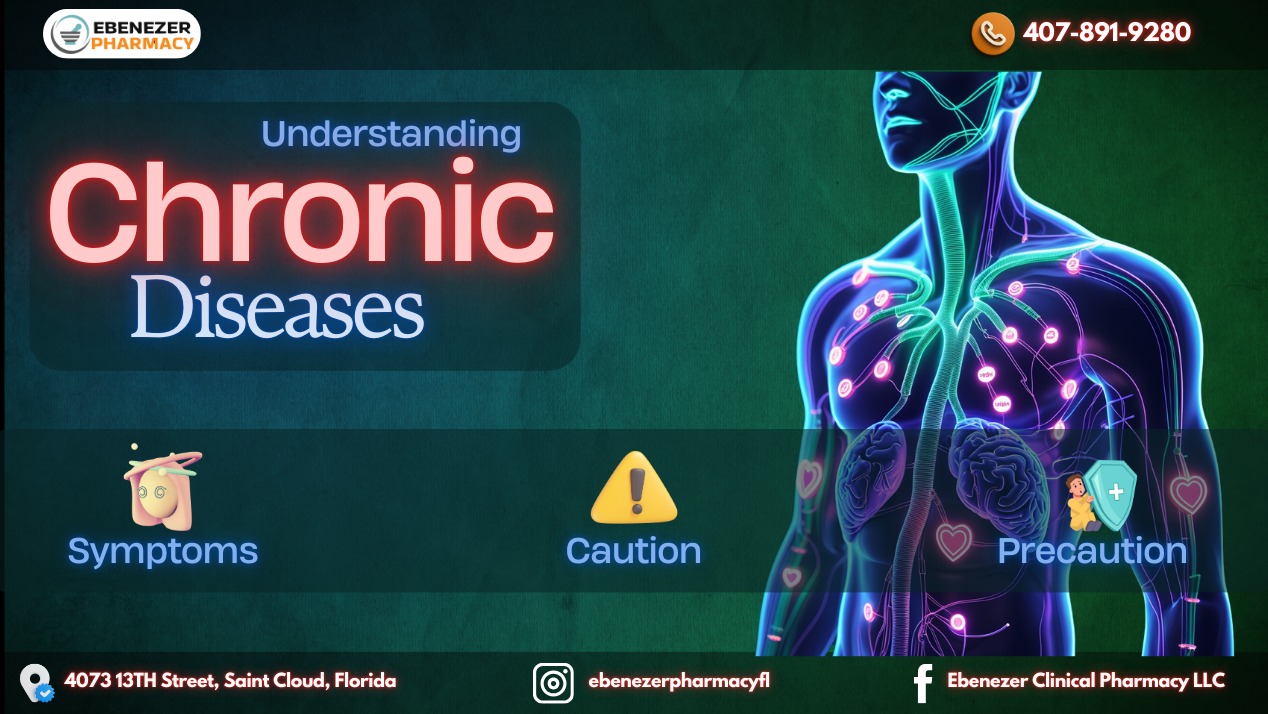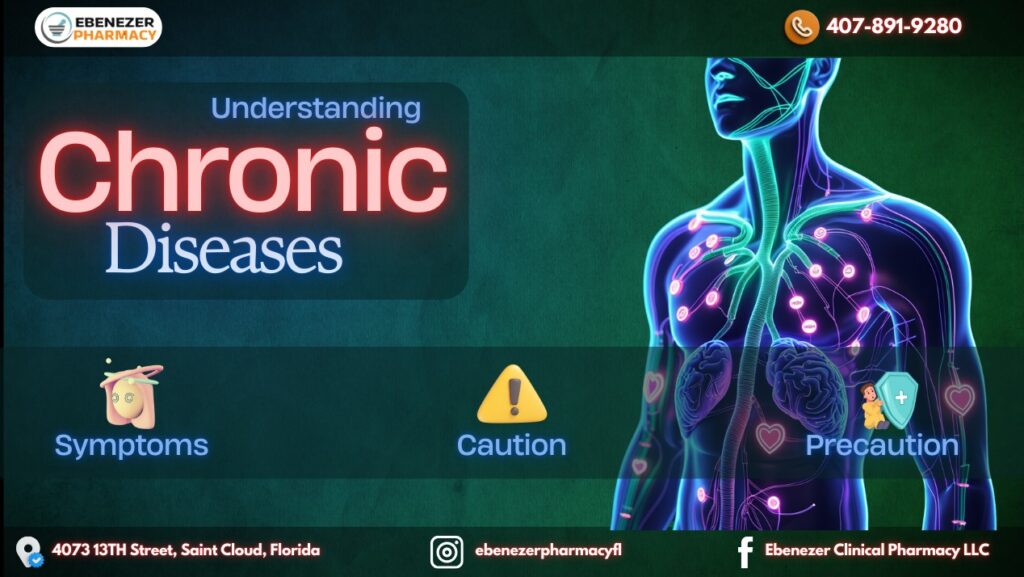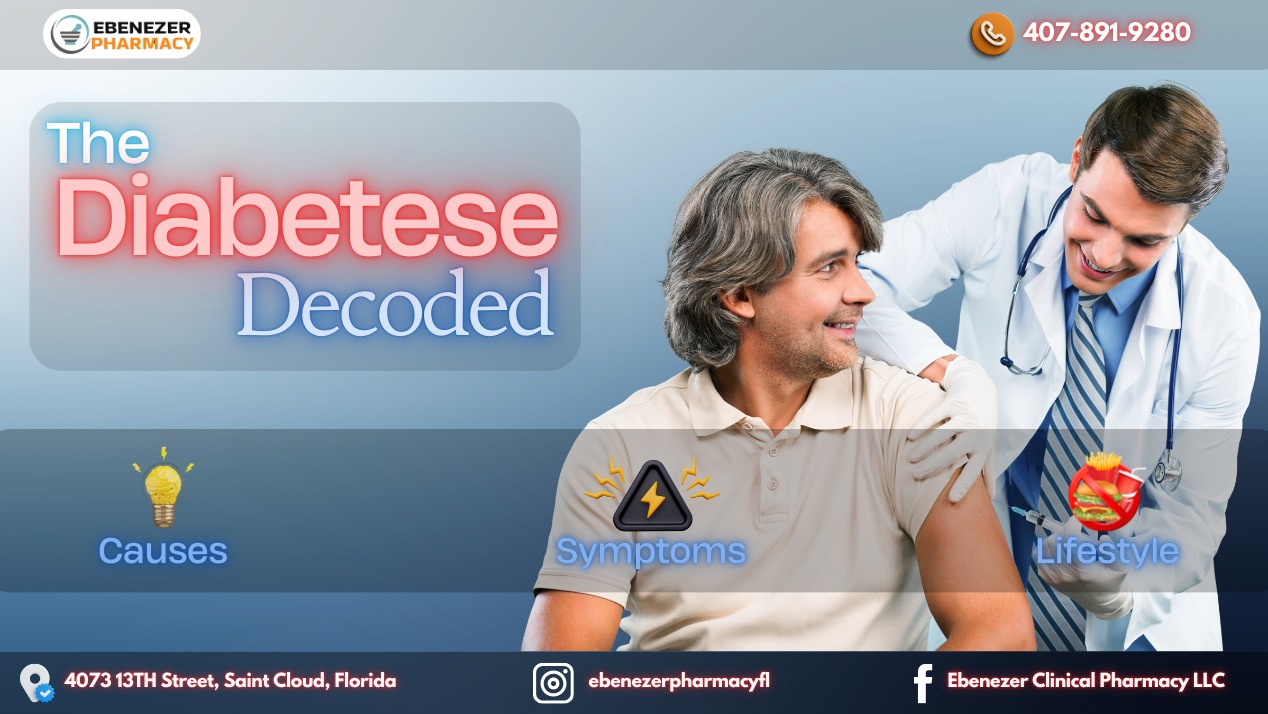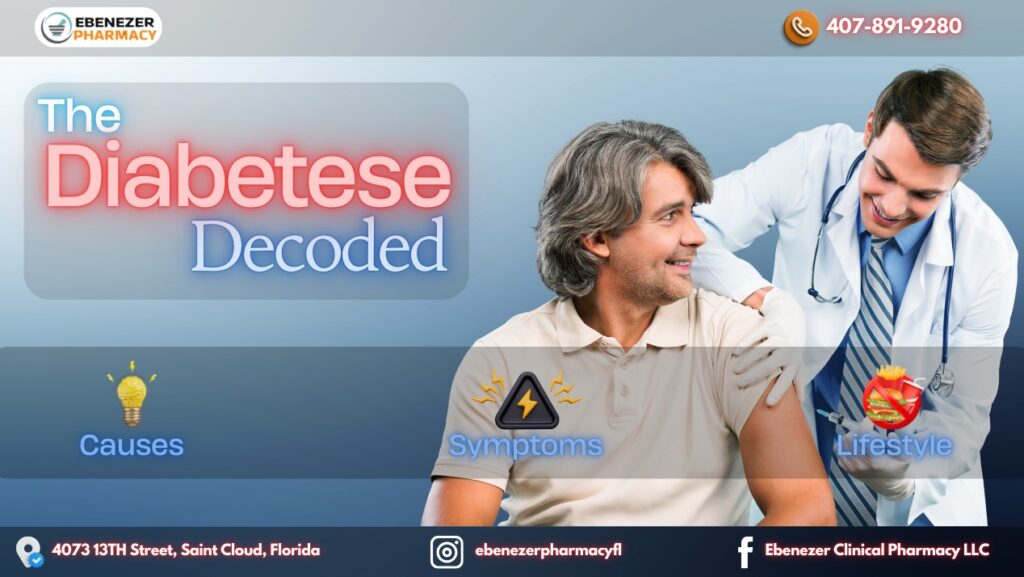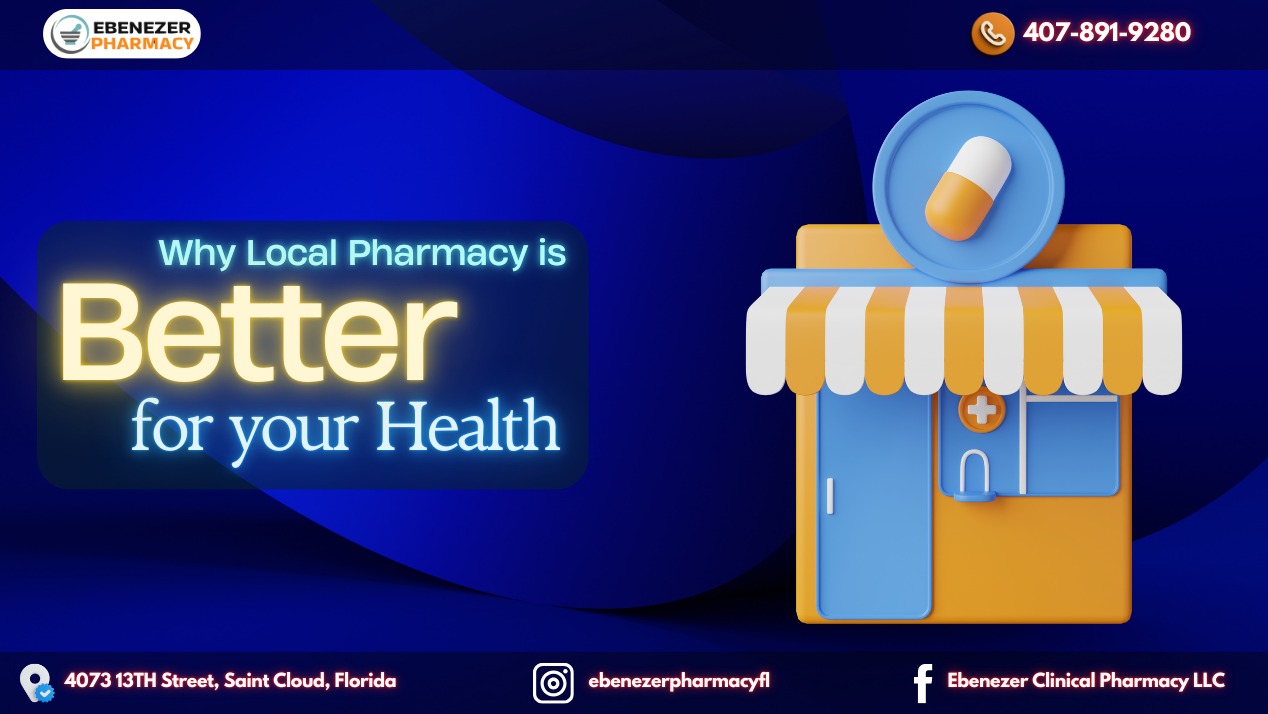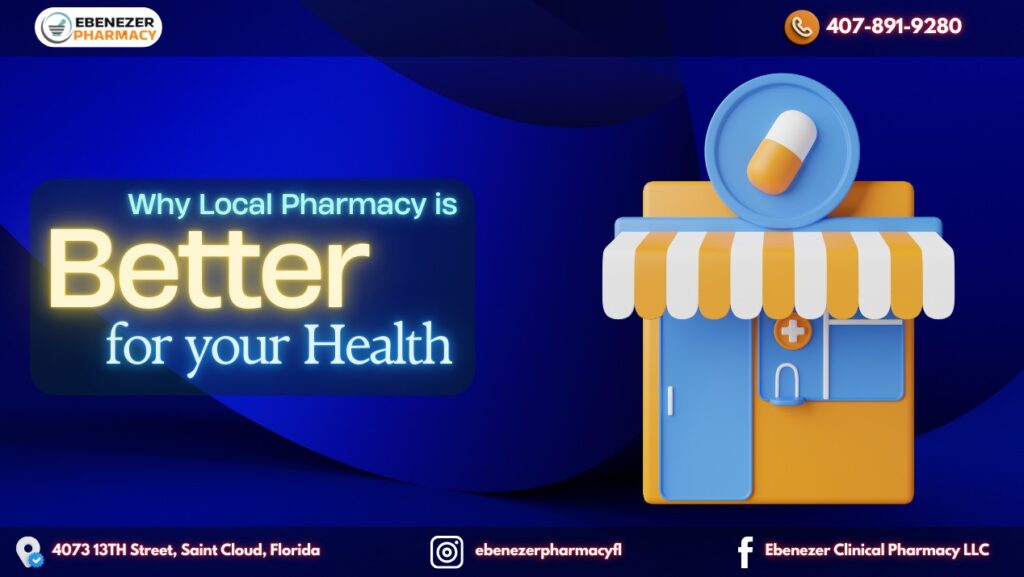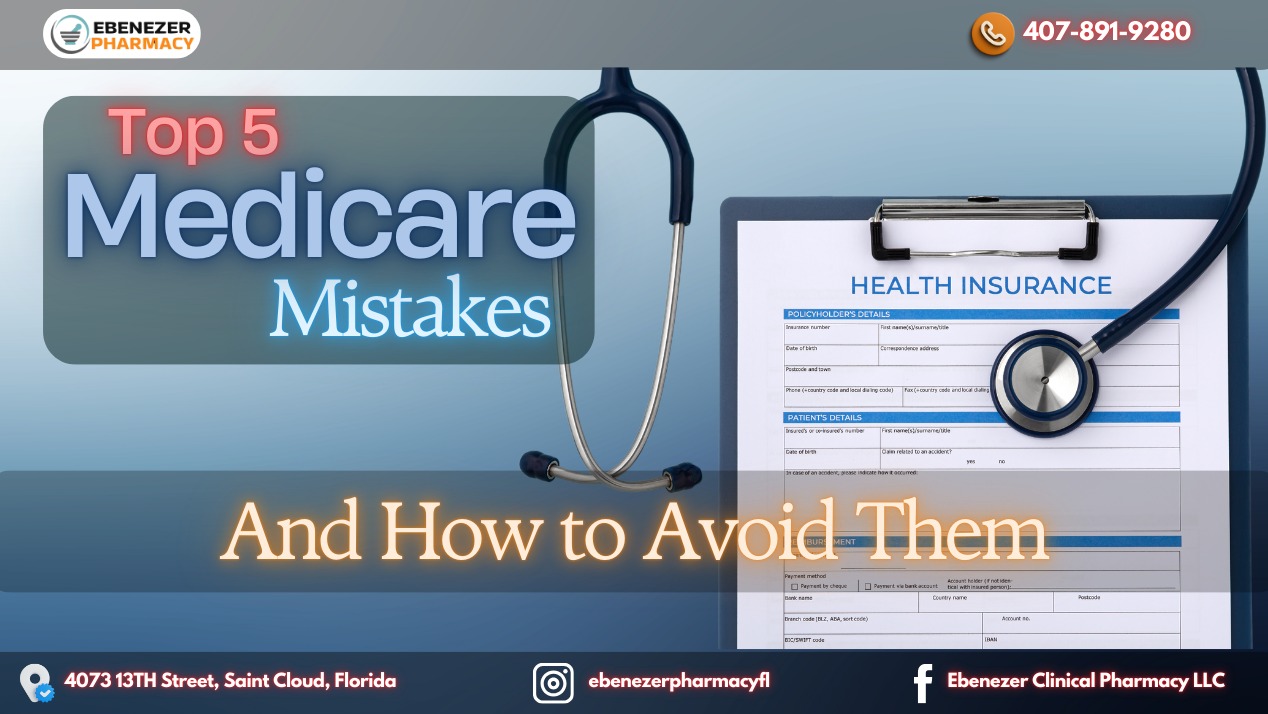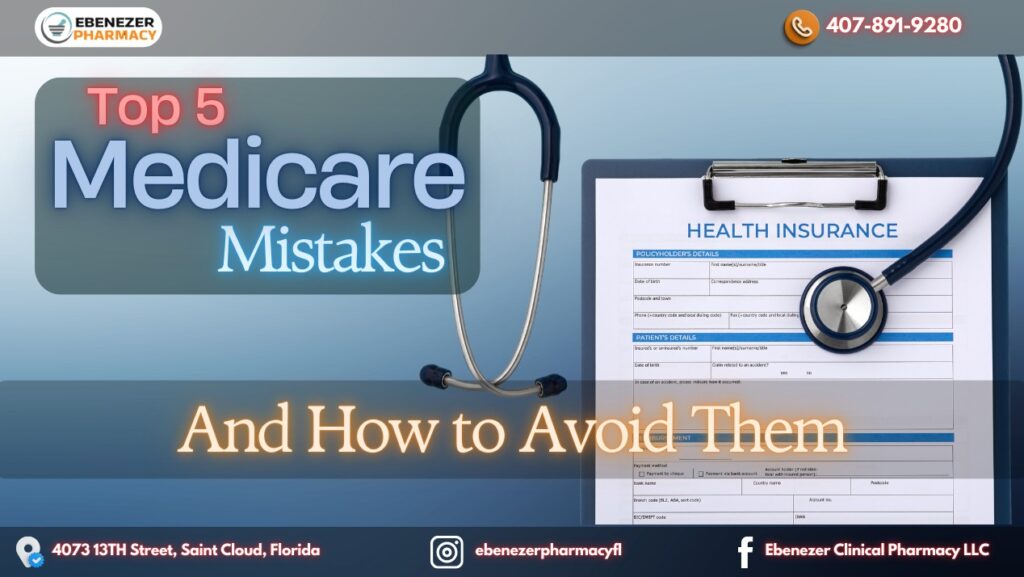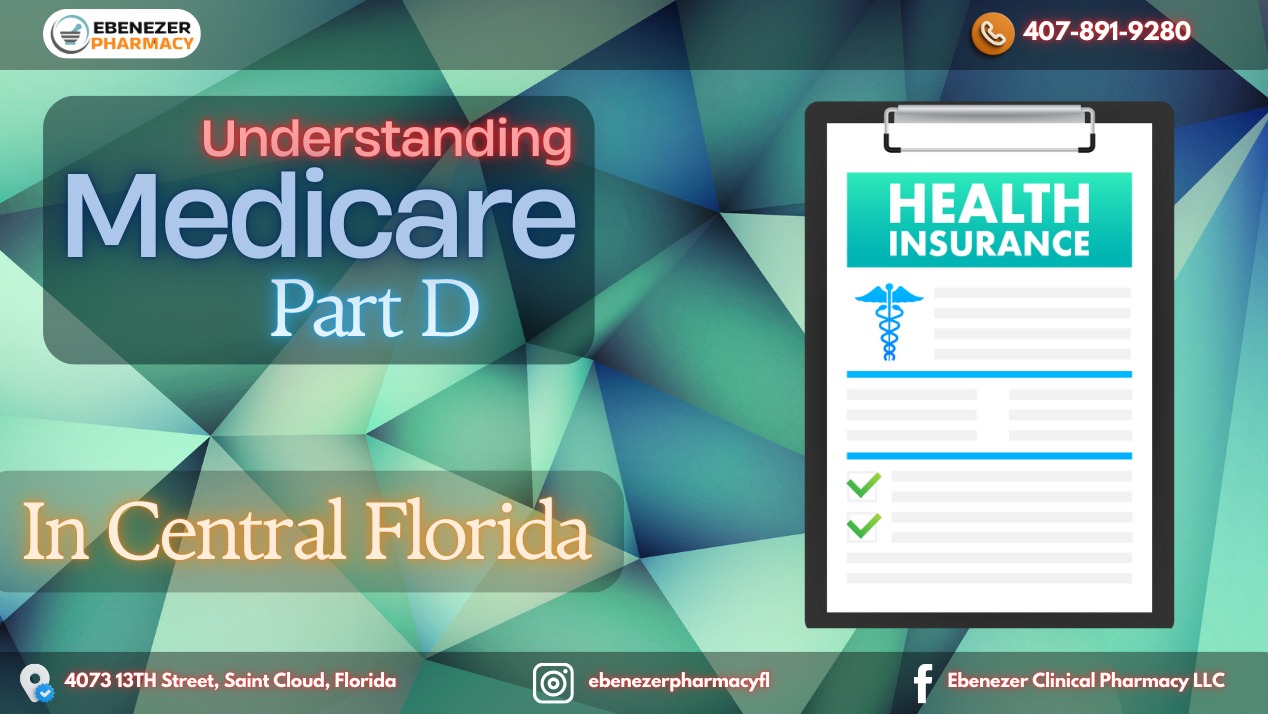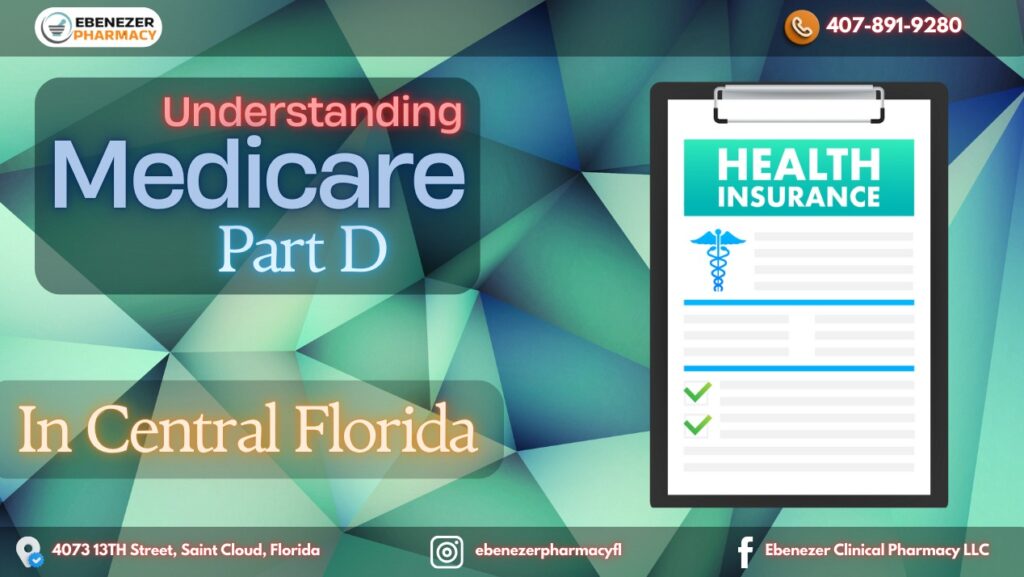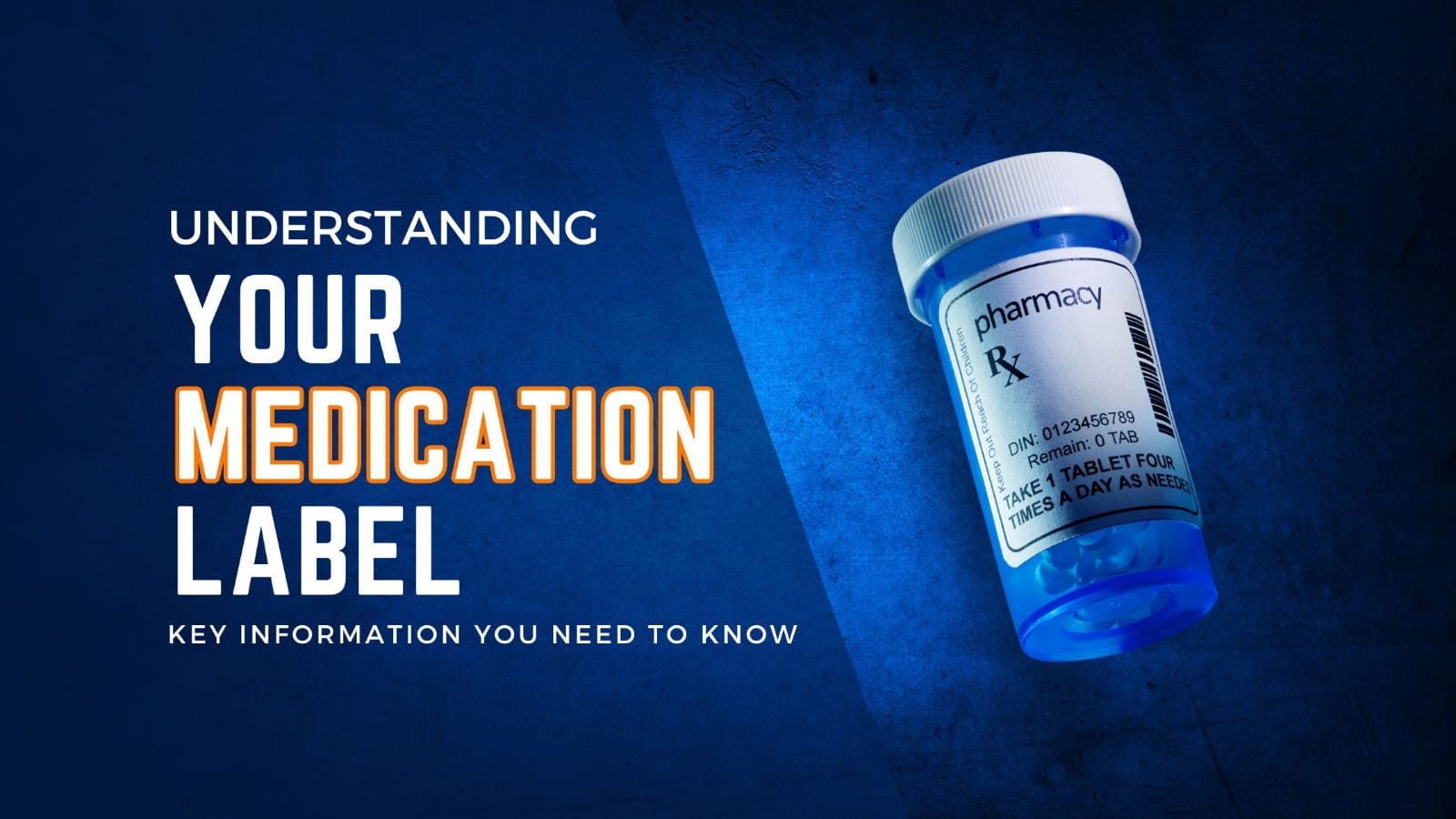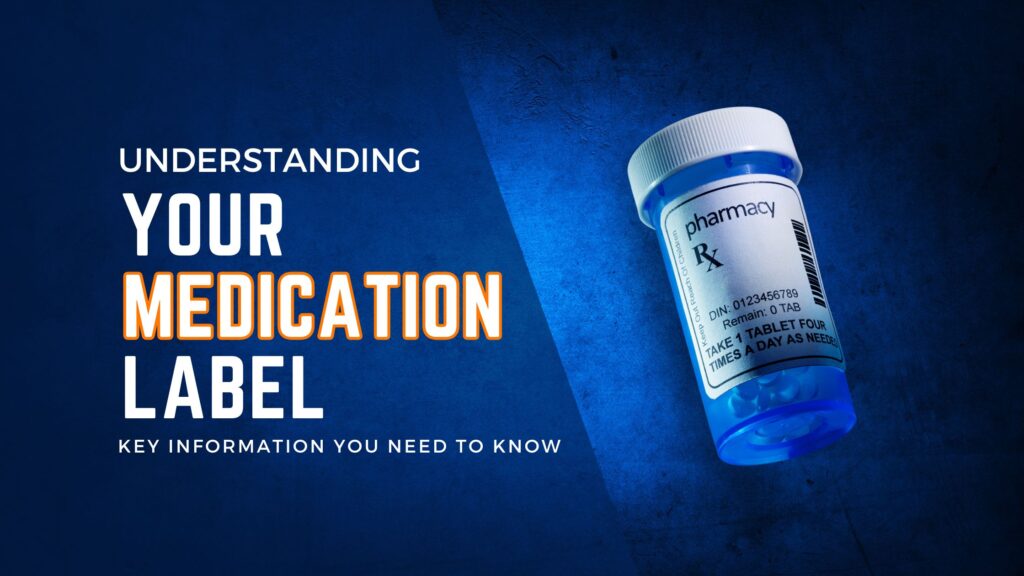Introduction
Diabetes is a lifelong condition, but with the right care and lifestyle adjustments, you can lead a healthy and active life. At Ebenezer Pharmacy, we’re committed to helping you manage diabetes effectively. This guide provides an overview of causes, symptoms, medications, and lifestyle tips, including a recipe to try. Trust Ebenezer Pharmacy as your health partner.
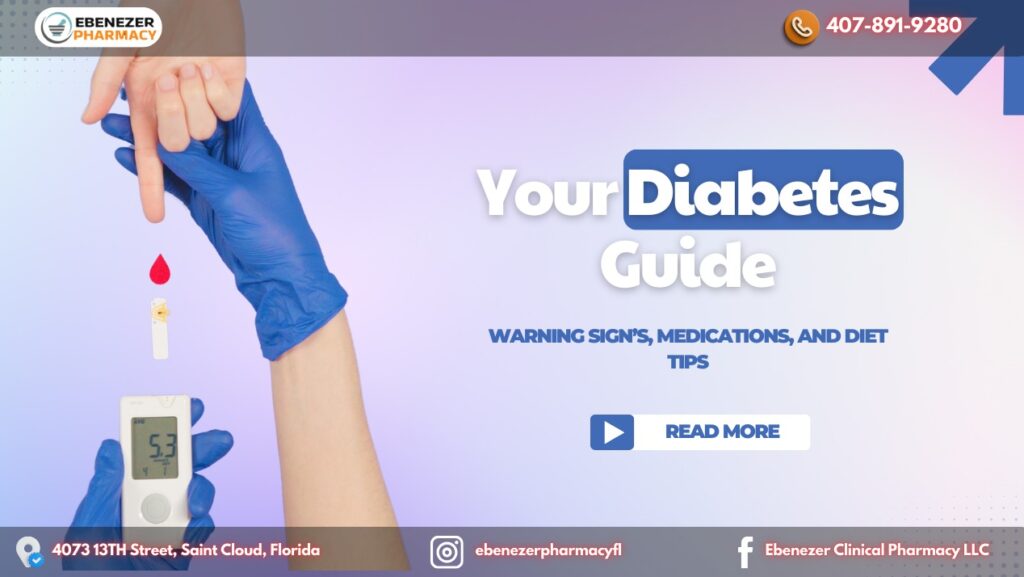
Understanding Diabetes
What is Diabetes?
It is a chronic medical condition that affects how your body regulates blood sugar (glucose), which is essential for providing energy to your cells. Glucose comes from the food you eat, and your body uses a hormone called insulin to help glucose enter your cells to be used as energy. When you have diabetes, this process is disrupted, leading to high blood sugar levels (hyperglycemia).
Insulin is produced by the pancreas, a gland located behind the stomach. In a healthy person, the pancreas releases insulin when blood sugar levels rise, helping the body absorb and use glucose. However, in people with diabetes, there’s either a lack of insulin production or the body does not respond to insulin properly. As a result, glucose builds up in the bloodstream, causing various health issues.
- Type 1 Diabetes: The body does not produce insulin.
- Type 2 Diabetes: The body doesn’t use insulin effectively.
Diabetes Symptoms:
- Excessive thirst and frequent urination.
- Fatigue and blurry vision.
- Unexplained weight loss or slow-healing wounds.
- Numbness or tingling in hands and feet.
Warning Signs of Diabetes
Recognizing early symptoms is key to managing it effectively. Common signs include:
- Frequent urination and excessive thirst.
- Fatigue and blurry vision.
- Unexplained weight loss.
- Slow-healing wounds.
- Numbness or tingling in hands and feet.
If you notice these signs, consult a healthcare provider for timely diagnosis and support.
Medications for Diabetes
Common Medications
- Metformin: Lowers blood sugar by improving insulin sensitivity.
- Insulin Therapy: Helps control blood sugar levels for Type 1 and some Type 2 patients.
- Sulfonylureas: Stimulate insulin production (e.g., Glipizide).
- GLP-1 Receptor Agonists: Slow digestion and help lower blood sugar (e.g., Liraglutide).
Medication Management Tips
- Monitor your blood sugar levels regularly.
- Refill your prescriptions easily at Ebenezer Pharmacy.
- Speak to our team for personalized advice.
Lifestyle Tips for Managing Diabetes
Diet Tips
- Eat balanced meals that include complex carbohydrates, lean proteins, and healthy fats.
- Avoid sugary drinks and choose water or unsweetened beverages.
- Incorporate high-fiber foods such as whole grains, legumes, fruits, and vegetables to maintain steady blood sugar levels.
Exercise Regularly
- Aim for at least 30 minutes of moderate activity daily, such as walking, cycling, or swimming.
- Strength training exercises help improve insulin sensitivity and overall fitness.
- Consult with your doctor to develop an exercise plan that suits your health condition.
Try This Diet for Diabetes-Friendly Recipe
Vegetable Stir-Fry with Quinoa
Ingredients:
- 1 cup cooked quinoa
- 1 cup mixed vegetables (broccoli, bell peppers, carrots)
- 1 tbsp olive oil
- 1 clove garlic, minced
- 1 tbsp low-sodium soy sauce
- 1 tsp sesame seeds (optional)
Instructions:
- Heat olive oil in a pan and sauté garlic until fragrant.
- Add mixed vegetables and stir-fry until tender-crisp.
- Stir in cooked quinoa and soy sauce.
- Garnish with sesame seeds and serve hot.
This dish is low in sugar and high in fiber, making it a great addition to your meal plan.
Why Choose Ebenezer Pharmacy?
At Ebenezer Pharmacy, we go beyond providing medications. We offer:
- Personalized Care: Our pharmacists provide expert advice tailored to your diabetes management plan.
- Convenience: We ensure quick and hassle-free prescription refills, so you never miss a dose.
- Support: Our team is here to answer your questions and provide guidance every step of the way.
We’re more than just a pharmacy — we’re your trusted partner in your diabetes journey.
Manage your diabetes effectively with Ebenezer Pharmacy. Visit us today!
Conclusion
Managing diabetes requires a proactive approach that combines medications, lifestyle changes, and continuous support. At Ebenezer Pharmacy, we’re dedicated to helping you achieve better health through personalized care and reliable services. Let us be your health partner on this journey — visit us today and take the first step toward effective diabetes management.
Ebenezer Pharmacy
Your Partner in Health
Phone: 407 891 9280
Email: info@ebenezerpharmacy.com
Website: www.ebzpharmacy.com
